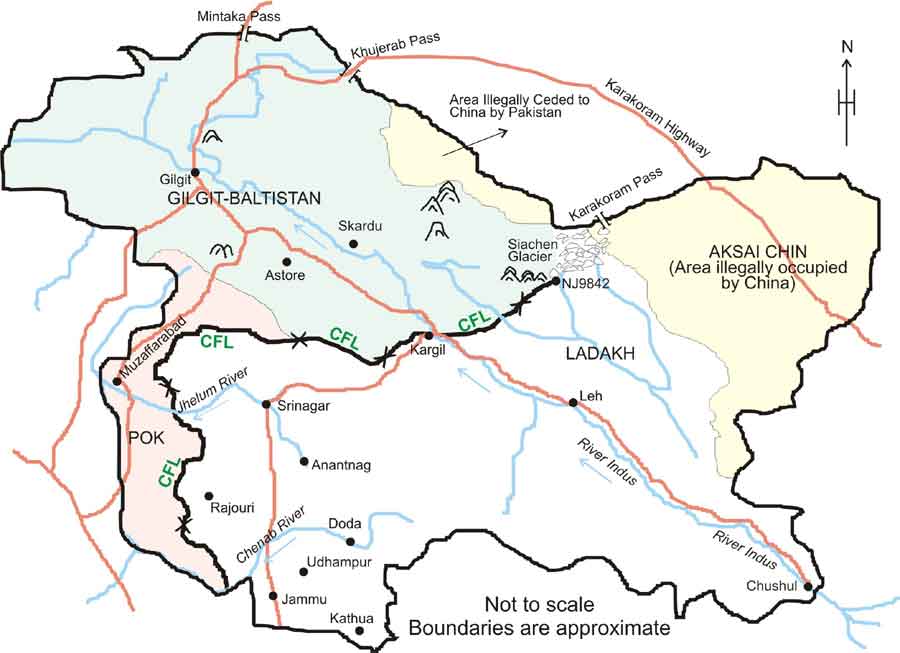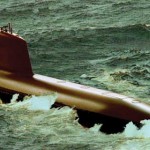 The First-Tier Tribunal of the United Kingdom is to hear a petition by British author Andrew Lownie seeking full disclosure of the Mountbatten Diaries. He has alleged that Mountbatten met Cyril Radcliffe, who headed the Boundary Commission to demarcate the India-Pakistan border, and Christopher Beaumont (secretary of the Boundary Commission) on July 12, 1947. Another allegation is that the British government opted to withhold that information as it might reveal Mountbatten ‘influenced’ India’s partition, which could affect UK-India relationship.
The First-Tier Tribunal of the United Kingdom is to hear a petition by British author Andrew Lownie seeking full disclosure of the Mountbatten Diaries. He has alleged that Mountbatten met Cyril Radcliffe, who headed the Boundary Commission to demarcate the India-Pakistan border, and Christopher Beaumont (secretary of the Boundary Commission) on July 12, 1947. Another allegation is that the British government opted to withhold that information as it might reveal Mountbatten ‘influenced’ India’s partition, which could affect UK-India relationship.
According to the media, the case is against the UK government to fully disclose the remaining confidential diaries and correspondence of Lord and Lady Mountbatten. The Mountbatten Dairies (termed Broadlands Archive) are held by the University of Southampton’s archival section. In 2019, the Information Commissioner’s Office (ICO) had ruled that the entire Broadlands Archive (33 files, 1948-60) including letters from Lady Mountbatten to Jawaharlal Nehru with copies of his letters to her be made available to Lownie. That decision of the ICO has since been appealed, which is now being heard in the First-Tier Tribunal.
Cyril Radcliffe arrived in India on July 8, 1947 and was given five weeks to draw the borders between independent India and the newly created Pakistan. Radcliffe had never visited India earlier and probably never seen a map of India. He chaired two boundary commissions, one for Punjab and one for Bengal, consisting of two Muslims and two non-Muslims each – none being from military or with military background.
Over a Century of British rule in India with atrocities galore (Black Hole of Calcutta and Jallianwala Bagh just two examples), massive loot and after killing Indian industry infrastructure, five weeks to Partition the Country by Radcliffe who had been conscripted in World War I but found fit only for Labour Corps on account of “poor eyesight”. He would have been primed with British guile and pumped with deceit for the job of heading the Boundary Commission and ‘briefed’ that Pakistan was the favoured child to stop communist expansion.
Mountbatten declared Independence on August 15, 1947, two days ‘before’ the resulting boundary award was announced on August 17. Radcliffe sailed back to England on August 18, Partition along the Radcliffe Line ended in violence that killed one million people and displaced 12 million.That blood soaked hands of the British including Mountbatten were witnessed by the world. But British treachery did not end there.
On Partition of India, the British contrived an invasion of India to capture Jammu and Kashmir (J&K) through Mountbatten (Governor General of independent India), Lockhart (C-in-C Indian Army) and Douglas Gracey (C-in-C Pakistan army). The invaders were largely Razakars with sprinkling of regulars, all armed by the Pakistan army while British officers of the Pakistan army guided the Pakistani invaders into the Shyok and Nubra Valleys of Ladakh but the Nubra Guards of Ladakh fought and made them retreat.
The British government’s dictum to Douglas Gracey was to let India-Pakistan fight but “keep a piece of India”, so that both keep fighting in perpetuity. Gracey organized the fall of the Skardu Garrison comprising J&K State Forces which had been holding on for eight months. The complete garrison including women and children were massacred albeit Lt Col Sher Jung Thapa, garrison commander was not killed but taken prisoner since Gracey had known him earlierwhile serving in India. When the Indian Army was going after the retreating Pakistani infiltrators in J&K, Mountbatten and Lockhart persuaded Nehru to call a ceasefire and approach the United Nations for arbitration. This was another trap to make Pakistan party to the contrived dispute on Kashmir, which did not exist since J&K had formally seceded to India. It also gave Pakistan a border with China it never had which changed the strategic equations in the Subcontinent forever.
During the India-Pakistan Karachi Agreement of 1949 held under aegis of the United Nations, the Ceasefire Line (CFL) marked went east only till NJ 9842, beyond which it only said “thence North to the Glaciers” – another mischief contrived by the British. Also, the CFL was marked on a 1:2,50,000 map with thick sketch pen and did not follow the watershed principle. Marking a 1:2,50,000 map with a thick sketch pen itself meant a difference of up to one kilometer at any point – cause for perpetual friction which remains cause for friction to-date even though the CFL was renamed Line of Control (LOC) in 1972.
What the First-Tier Tribunal will rule on Lownie’s petition is yet to be seen but Andrew Lownie should not hope for much. As for Mountbatten meeting Cyril Radcliffe and Christopher Beaumont on July 12, 1947, there is no need to look for an entry in the Mountbatten Diaries. As mentioned above, Cyril Radcliffe arrived in India on July 8, 1947 and would have certainly met Mountbatten accompanied by Beaumont or without.
According to another media report, the British government is paying some 600,000 pounds (around $800,000) for the court battle to keep the Mountbatten Diaries of both husband and wife secret. This reportedly is to save any damage to the British royal family and jeopardize UK-India and UK-Pakistan relationships.
In 2011, the University of Southampton had purchased the diaries from the Mountbatten family, using public funds of over 2.8 million pounds with the intention of making the papers widely available – making money in the process?But the university perhaps did not realize the implications of Mountbatten being a member of the British royal family. To expect original documents connected with the royal family would be utopian. The manner in which the death (or assassination?) of Lady Diana was handled is indicative of this.
Louis Mountbatten anyway was just a conduit for treachery of the British government perpetrated on the Indian population and India. If he did influence Radcliffe’s actions in the boundary commission, he was obviously acting on behalf of the British government, not of his own volition. The First-Tier Tribunal, therefore, may not be able to give any reprieve to Andrew Lownie beyond perhaps confirming that Mountbatten did meet Radcliffe on July 12, 1947 four days after the latter arrived in India. But this can hardly prove that he ‘influenced’ the boundary commission.
De-classifying the correspondence between Edwina Mountbatten and Jawahar Lal Nehru too is unlikely unless the British government is sure that it will not affect the royal family in any manner. It is not known what aspects Andrew Lownie is covering in his book (s) but some British author should muster the courage to write about the ‘black deeds’ of the British while ruling India, for which one prime minister apologizing for the Jallianwala Bagh massacre is only a drop in the ocean. Also, Lownie could get ample inputs including about Mountbatten’s role from Indian scholars.
Britain’s anti-India stance and bias towards Pakistan spearheaded by the British media and the BBC working directly under Britain’s Foreign Office continues unabated. This includes promoting Pakistan’s disinformation campaign on Kashmir. The surprising part is British Prime Minister Boris Johnson on one hand seeks free trade agreement with India and better defence ties but simultaneously is meddling in India’s internal affairs. His inflammatory letter to British parliamentarians accusing India of land-grabbing in J&K and promoting exclusive Hindu settlementsis ludicrous. There is a viewpoint that his disheveled hair signals his confused muddled thought process but perhaps he should get his head examined.
Boris needs to read about his ancestors ruling India looting some $45 trillion between 1765 and 1938 and about 1.8 billion Indians dying because of egregious deprivation between 1757 and 1947; deadly impact of which continues to-date. Moreover, the era of sun not setting over the British Empire has gone long back and taking a piggy back on the back of America cannot replace that. So it is time for the British to get off the high horse and get down to mother earth.




